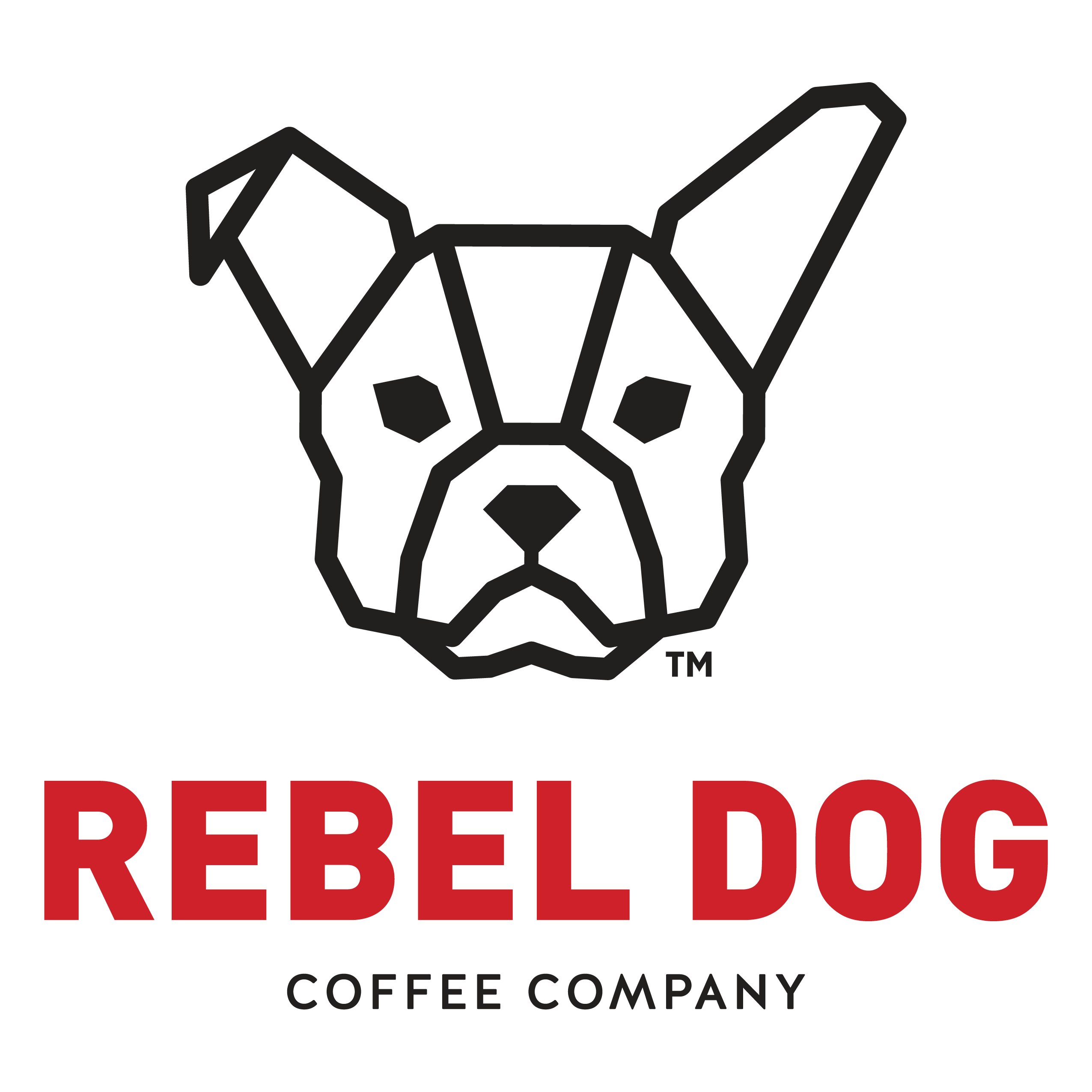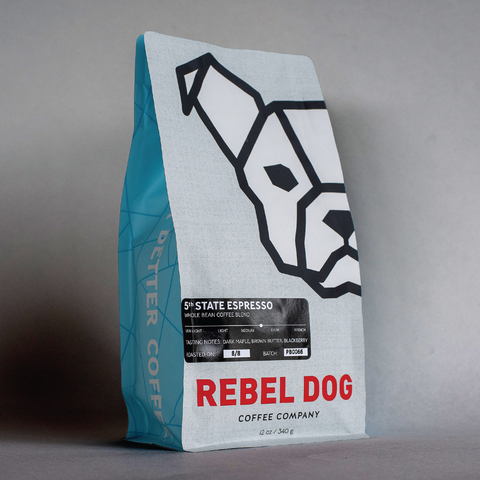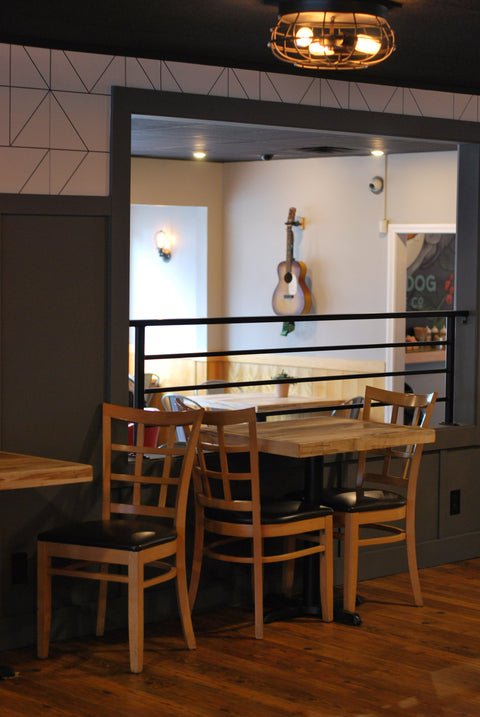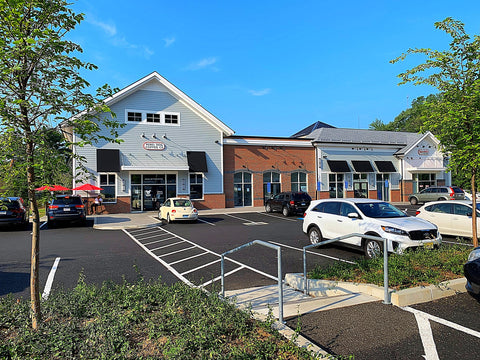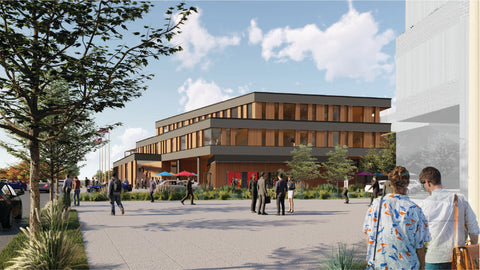What's in 5th State?
Variety:CastilloGrowing Altitude:1560 masl
Processing Method:Washed
Finca Palmichal is high on the western side of the Central Andes mountain range, near the municipality of Genova, in the department of Quindío. This region went through violent and difficult times during the peak of the guerrilla expansion in the country. But now, after the negotiation between the government and the FARC, there is hope among these communities for many safe and happy years to come.
Producer Atilano Giraldo is the third generation of his family to grow coffee in Quindío, and he grew up working in coffee alongside his father. Gradually, he acquired additional properties, including Finca Palmichal, which he bought from the local Osorio family.
Recently, after years of hard work, and in order to help the development of his region, Don Atilano ran and was elected as a senator in the Colombian parliament representing Quindío.
Varieties: Typica, Caturra, Bourbon, Catuai, Paches
Growing Altitude: 1100–1800 masl
Processing Method: Fully Washed
Coffee from Huehuetenango (pronounced way-way-ten-AN-go) is known for its complexity and toffee-like sweetness, and this one is no exception. This particular selection is sweet and mild, with notes of toffee and coffee cherry balancing perfectly with the tart acidity throughout its counterparts.
In the Maya Q'qnjobal dialect from Huehuetenango, waykan means "star (or light) that shines in the sky at night."
Varieties: Blue Mountain , Bourbon, SL28, Typica
Growing Altitude: 1600-1900 masl
Processing Method: Fully Washed
Vertical-integration and whole-harvest sourcing enable Sucafina to source Korongo’s 84+ SCA cup in significant volumes at an accessible price that supports roaster success and producer resilience. This lot is IMPACT verified and contributes to a Farmgate Initiative project.
The Korongo blend (named for the Swahili word for flamingo) is sourced from a network of washing stations across Mbozi, Mbeya & Mbinga, in Tanzania’s Southern Highlands. Selected by QC teams at our sister company in Tanzania, Korongo showcases Tanzania’s true potential, offering a consistent, fully traceable 84+ SCA cup available in large volumes. Vertical-integration and whole-harvest sourcing enable us to source Korongo at an accessible price that supports roaster success and producer resilience. Our Korongo displays the best of Tanzanian flavor profiles with a full body, pronounced sweetness and prominent acidity.
This Korongo lot is IMPACT verified. IMPACT is Sucafina's responsible sourcing standard that focuses on 5 key impact areas to improve carbon emissions, human rights, regenerative agriculture, living income and deforestation. Through IMPACT verification, farmers can access new markets and increase their livelihoods while making a bigger positive impact through their production.
In addition to growing coffee, farmers typically intercrop with corn, beans, groundnuts, sunflowers and ginger.
Cherry is hand-harvested. Farmer process cherry on their own farms, so individual processing methods vary from farm to farm. In general, cherry is pulped using either an eco-pulper or standard pulper and then fermented. Following fermentation, parchment is dried on raised beds for 14-20 days. Once dry, the parchment sits for 2-3 months in cooperative warehouses before being transferred to mills in either Mbozi or Mbinga, districts in Southern Tanzania, to be prepared for export.
Peaberry is a name given to a very specific shape of coffee bean. In Spanish, peaberries are called “caracol”, which means “snail”. The name aptly describes the shape of the peaberry bean, which appears slightly curved in on itself. Peaberries are the result of a natural mutation in the coffee cherry. Whereas there are usually two beans nestled together in each fruit, a cherry with a peaberry mutation only forms one bean. Thus, peaberries are a single, rounder bean.
Peaberry mutations occur in approximately 5% of all coffee. The beans are known for being rounder, smaller and denser, which can contribute to a more even roast color when handled correctly. Many people find peaberries to have a sweeter flavor profile, as well. Since peaberries are a natural mutation that is not visible from the outside of the cherry, peaberries must be sorted out during the screen grading stage of dry milling. The peaberry screens have the smallest holes, which are oblong to allow the rounder beans to fall through.
Varieties: Various
Growing Altitude: 800-1,100 masl
Processing Method: Natural, Pulped Natural
This 84+ scoring coffee is the result of an effort of Brazilian QC professionals selecting the best-tasting coffees from a variety of producers throughout the country to showcase the best of Brazilian coffee while providing a consistent and reliable income for farmers.
The rattlesnake, known as Cascavel in Portuguese, gets a bad rap. Its reactive tendency to defend itself from all perceived threats makes it a frightening opponent. But it’s also essential to the coffee ecosystem. In addition to their beautiful markings, rattlesnakes eat rodents and other small animals. They keep these pests far away from coffee fields where they could wreak havoc by burrowing into coffee tree root systems or chewing through irrigation setups.
Cascavel Vermelha (Portuguese for red) has lots of red fruit and refined sweetness. This coffee has been selected based on its fruity profile. In most cases, Natural processing connotes such flavors; however, this coffee may have some Pulped Natural contributions as well. Natural lots will be dried on large patios under sun, while Pulped Natural will be pulped and then laid to dry on patios. In both cases, the coffee will be raked and turned regularly to ensure even drying and a clean cup profile.
